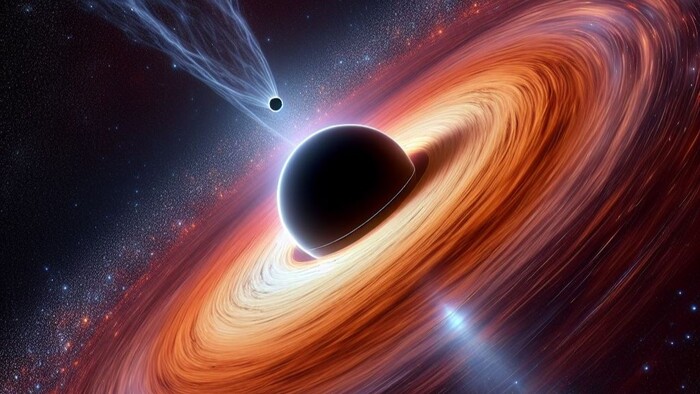A black hole with 'hiccups' was observed for the first time at the center of a galaxy 800 million light years away from us. For four months it emitted plumes of gas every 8.5 days, probably due to the presence of a second smaller black hole that buzzes around it.
If confirmed, this discovery could change the concept of the accretion disk of black holes, which until now was considered as a relatively uniform disk of gas rotating around the black hole. The results of the new study suggest that in some cases this disk could host other black holes and even stars.

